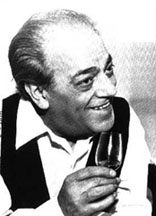

HEITOR VILLA-LOBOS
5th March 1887 --- 17th November 1959
Last Updated on 2021
By Steven Ritchie
And now for the Music

My thanks to Brian M. Ames for the music below
New (3498)"Suite Floral, No.1". Sequenced by Brian M. Ames. New (3497)"Suite Floral, No.2". Sequenced by Brian M. Ames. New (3496)"Suite Floral, No.3". Sequenced by Brian M. Ames. (1782)"Prole do Bebe No.2 Moreninha". Sequenced by Brian M. Ames (1783)"Prole do Bebe No.3 Caboclinha". Sequenced by Brian M. Ames (1784)"Prole do Bebe No.4 Moreninha". Sequenced by Brian M. Ames (1785)"Prole do Bebe No.7 Polichinelo". Sequenced by Brian M. Ames My thanks to Jose Marques for the music below
(1776)"Bendita Sabedoria - No.1, Adagio". Sequenced by Jose Marques (1777)"Bendita Sabedoria - No.2, Andantino". Sequenced by Jose Marques (1778)"Bendita Sabedoria - No.3, Quasi allegretto". Sequenced by Jose Marques (1779)"Bendita Sabedoria - No.4, Allegro". Sequenced by Jose Marques (1780)"Bendita Sabedoria - No.5, Andante". Sequenced by Jose Marques (1781)"Bendita Sabedoria - No.6, Largo". Sequenced by Jose Marques (787)"Bachianas Brasileiras No.5". Sequenced by Marcelo A.K Fontana (788)"Cai, cai, balao, Cirandinhas No.6". Sequenced by Marcelo A.K Fontana (789)"Zangou-se o cravo com a rosa" Cirandinhas No.1". Sequenced by Marcelo A.K Fontana (192)"Carnaval des Criances No.2". Sequenced by Marcelo A.K Fontana (196)"Danca do Indio Branco". Sequenced by Marcelo A.K Fontana (4a)"Impressoes Seresteiras". Sequenced by Marcelo A.K Fontana (345)"Suite Populare Bresilienne No.1 Mazurka-Choro". Sequenced by Sir Vocalise (147)"Preludio No.1, E Flat for guitar,(Info by Uwe Janssen and Mark Geiser)". Sequencer unknown (5a)"Prole de Bebe No.1, No.2, Moreninha". Sequencer unknown

If you done any Classical pieces of say for example, Delius, mozart, and so on etc,
please email them to the classical music site with details to
"classical (@) ntlworld.com" written this way to stop spammers
just remove spaces and brackets for email address, thank you.

Visitors to this page --

Back to Classical Midi Main Menu click "HERE"